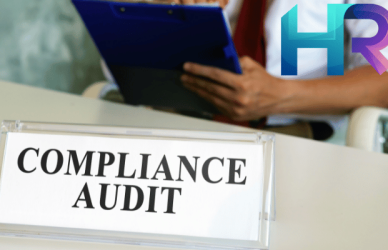In today’s fast-paced and ever-evolving work environment, ensuring fairness and equity in the workplace is not just a matter of good practice—it’s a legal and ethical obligation. HR professionals and organizations must navigate a complex web of regulations and laws to create a workplace where every employee feels valued and treated fairly. In this blog post for Dutybell, we will delve into the critical HR regulations that underpin workplace fairness, providing a comprehensive understanding of the legal landscape.
Anti-Discrimination Laws:
At the heart of workplace fairness are anti-discrimination laws that protect employees from unjust treatment based on factors like age, race, gender, sexual orientation, disability, and more. The Equal Remuneration Act, 1976, ensures equal pay for equal work, and The Persons with Disabilities (Equal Opportunities, Protection of Rights, and Full Participation) Act, 1995, safeguards the rights of employees with disabilities. HR professionals must not only understand these laws but also actively promote a diverse and inclusive workplace culture.
Sexual Harassment Regulations:
The Sexual Harassment of Women at Workplace (Prevention, Prohibition, and Redressal) Act, 2013, mandates that every organization with more than 10 employees establish an Internal Complaints Committee (ICC) to address complaints of sexual harassment at work. It is vital for HR to ensure the creation and effective functioning of an ICC to provide a safe and harassment-free environment for all employees.
Labour Laws and Collective Bargaining:
India’s labor laws, including the Industrial Disputes Act, 1947, and the Trade Unions Act, 1926, provide a framework for fair and equitable treatment of workers. HR professionals must be well-versed in these regulations, as they govern issues such as employment termination, trade union rights, and dispute resolution.
Equal Pay for Equal Work:
The Payment of Gratuity Act, 1972, and the Equal Remuneration Act, 1976, emphasize the principle of equal pay for equal work and the payment of gratuity to eligible employees. HR departments must ensure these legal obligations are met.
Employee Benefits and Welfare:
The Employee State Insurance Act, 1948, and the Employees’ Provident Funds and Miscellaneous Provisions Act, 1952, are crucial for providing social security benefits to employees. Ensuring that employees receive these benefits as mandated by law is vital for their well-being.
The Factories Act, 1948:
This act regulates working conditions in factories, including issues related to health, safety, and employment of young workers. Compliance with the act is essential to create a safe working environment.
Maternity Benefits:
The Maternity Benefit Act, 1961, mandates the provision of maternity leave and benefits to female employees. Employers must understand and implement these regulations to support female employees during maternity.
Data Privacy and Protection:
In the era of digital workplaces, data privacy is paramount. Understanding and adhering to data protection regulations, including the upcoming Personal Data Protection Bill, 2019, is essential to safeguard employee information.
Workplace fairness is not just an aspiration but a legal requirement. HR professionals must be proactive in understanding and implementing HR regulations that promote equity and fairness in the workplace. Non-compliance can lead to legal disputes, financial penalties, and damage to an organization’s reputation. By embracing these regulations, HR professionals can create a workplace where every employee is treated fairly and with respect, ultimately fostering a healthy and productive work environment.
Dutybell is committed to providing HR professionals and organizations with the guidance and resources needed to understand and navigate HR regulations effectively, thereby ensuring workplace fairness. Compliance is not just about following the rules; it’s about creating a workplace where everyone can thrive and contribute their best. Stay tuned for more valuable insights and resources to help you stay informed and compliant in the ever-evolving world of HR regulations.





